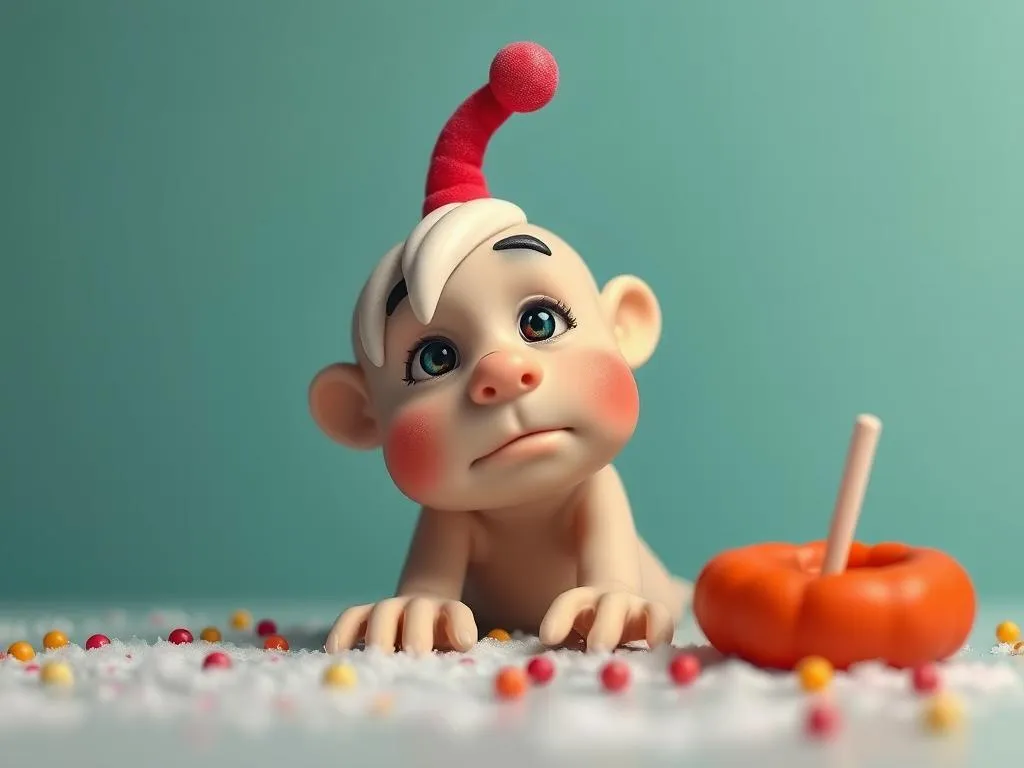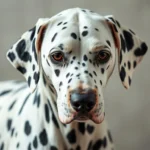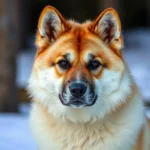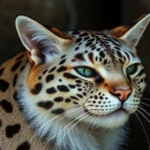
Finding the right dog breed can be one of the most significant decisions for potential dog owners. With a plethora of breeds to choose from, each possessing its unique characteristics, understanding these breeds becomes essential. Among these breeds, the Pinny Poo stands out as a delightful mixed breed that has captured the hearts of many dog enthusiasts. This article will delve into the characteristics of the Pinny Poo, its parent breeds, temperament, care requirements, and much more.
Understanding Mixed Breeds
Definition of Mixed Breeds
Mixed breed dogs, often referred to as mutts, are those that result from the crossing of two or more different purebred dogs. This differs from purebred dogs, which are bred within a specific lineage with a set standard of characteristics. While purebreds often have predictable traits, mixed breeds can exhibit a variety of physical and behavioral characteristics due to their diverse genetic backgrounds.
Benefits of Mixed Breeds
One of the primary advantages of mixed breed dogs is the concept of hybrid vigor. This refers to the phenomenon where mixed breeds often exhibit fewer health issues compared to their purebred counterparts due to increased genetic diversity. Additionally, mixed breeds like the Pinny Poo often showcase unique temperaments and appearances, making them one-of-a-kind companions. Their adaptability to various living situations—from apartments to houses with large yards—makes them suitable for a wide range of dog owners.
The Pinny Poo: An Overview
Description of the Pinny Poo
The Pinny Poo is a charming mixed breed that typically ranges in weight from 10 to 25 pounds and stands about 10 to 15 inches tall. This small to medium-sized dog often has a soft, curly coat reminiscent of its Poodle parent, while also inheriting the sleek, smooth coat traits of the Miniature Pinscher. The coat colors can vary widely, including combinations of black, brown, cream, and tan, making each Pinny Poo unique.
Parent Breeds
The Pinny Poo is a mix of the Poodle and the Miniature Pinscher, both of which bring distinct characteristics to this delightful hybrid.
-
Poodle: Known for their intelligence and hypoallergenic coats, Poodles come in various sizes (standard, miniature, and toy). They are highly trainable and are often seen in obedience competitions. Their energetic nature makes them love playtime and outdoor activities.
-
Miniature Pinscher: Often referred to as the “King of Toys,” this breed is known for its spirited personality and alertness. Miniature Pinschers are playful, confident, and can be quite vocal. They are also known for their sleek, shiny coats and elegant stature.
History of the Pinny Poo
The Pinny Poo is a relatively new mixed breed, emerging as designer dogs became popular in the late 20th century. Breeders sought to combine the intelligence and low-shedding qualities of the Poodle with the feisty and playful nature of the Miniature Pinscher. As a result, the Pinny Poo has gained popularity for its friendly demeanor and adaptability, making it a favorite among dog lovers.
Temperament and Behavior
General Temperament
The Pinny Poo is known for its lively and affectionate personality. These dogs are typically friendly, social, and eager to please their owners. They inherit the intelligence of the Poodle, making them quick learners, while also embodying the spirited nature of the Miniature Pinscher. This combination often results in a dog that is both playful and loving, forming strong bonds with their families.
Socialization Needs
Early socialization is crucial for the Pinny Poo. Exposing them to various environments, people, and other animals can help them grow into well-rounded adults. Recommended practices include puppy classes, playdates with other dogs, and family outings, ensuring that the Pinny Poo becomes a confident and sociable companion.
Compatibility with Families and Other Pets
The Pinny Poo tends to be an excellent choice for families with children. Their playful nature and affectionate demeanor make them great playmates. However, supervision during playtime is always advisable, especially with very young children. Additionally, their adaptability allows them to coexist with other pets, although early socialization can help foster positive relationships.
Care and Maintenance
Grooming Requirements
The grooming needs of the Pinny Poo can vary based on which parent’s coat traits dominate. Generally, they will require regular brushing to prevent matting, especially if they inherit the curly coat from the Poodle. A good rule of thumb is to brush them at least once or twice a week. Bathing should be done as needed, typically every few months, or when they get particularly dirty.
Exercise Needs
Despite their small size, Pinny Poos are energetic and require daily exercise. A minimum of 30 minutes of exercise per day is recommended. Activities can include walks, play sessions in the yard, or engaging games such as fetch. This breed thrives on interaction, so incorporating playtime with their owners is essential for their happiness.
Nutrition and Diet
A balanced diet is crucial for the overall health of a Pinny Poo. It’s essential to provide high-quality dog food, tailored to their age, size, and activity level. Consulting with a veterinarian can help determine the best diet plan. Additionally, portion control is important to prevent obesity, which can lead to various health issues.
Health Considerations
Common Health Issues
Like all breeds, the Pinny Poo can be predisposed to certain health issues. Some common concerns include:
- Hip dysplasia
- Eye disorders (such as cataracts)
- Patellar luxation
Regular veterinary check-ups and a healthy lifestyle can help mitigate these risks. Preventative care, including vaccinations and parasite control, is also vital.
Lifespan Expectancy
The average lifespan of a Pinny Poo ranges from 12 to 15 years. Factors affecting longevity include genetics, diet, exercise, and overall care. Providing a loving environment and regular veterinary visits can significantly enhance their quality of life and longevity.
Training and Behavior Management
Training Techniques
Training a Pinny Poo can be a rewarding experience due to their intelligence and eagerness to please. Effective training methods include:
- Positive reinforcement: Rewarding good behavior with treats and praise encourages repetition of desired actions.
- Consistency: Using the same commands and expectations helps the dog understand what is required.
Common Behavioral Problems
While the Pinny Poo is generally well-behaved, they may exhibit typical behavioral issues such as:
- Barking excessively
- Separation anxiety
- Chewing
Addressing these problems early with training, providing mental stimulation, and ensuring they feel secure can help manage these behaviors effectively.
Importance of Mental Stimulation
Providing mental stimulation is crucial for the well-being of a Pinny Poo. Engaging activities can include puzzle toys, obedience training, or interactive games. Mental exercise can help prevent boredom, which can lead to destructive behaviors and anxiety.
Choosing a Pinny Poo
Where to Find a Pinny Poo
If you’re considering adding a Pinny Poo to your family, you can look for reputable breeders or consider adoption from shelters and rescue organizations. Ensuring that the breeder follows ethical practices and can provide health clearances for the parent breeds is essential for a happy, healthy puppy.
What to Consider Before Adoption
Before adopting a Pinny Poo, consider your lifestyle. Assess your space, time commitment, and financial capacity for pet care. Pinny Poos thrive on companionship and require time for exercise and play, so ensure you can dedicate enough time to meet their needs.
Preparing Your Home
Creating a safe environment for your new Pinny Poo is critical. Essential supplies include:
- A comfortable bed
- Food and water dishes
- High-quality dog food
- Toys for mental stimulation
- A secure leash and collar
Taking the time to prepare your home will ensure a smooth transition for your new furry friend.
Conclusion
In summary, the Pinny Poo is a delightful mixed breed that combines the best traits of its parent breeds—the Poodle and the Miniature Pinscher. With their affectionate nature, intelligence, and adaptability, Pinny Poos can be wonderful companions for individuals and families alike. Understanding their care needs, socialization requirements, and health considerations is crucial for potential owners. If you’re considering this charming breed, take the time to evaluate your lifestyle and prepare your home to welcome a new furry family member. The joys of owning a Pinny Poo can be incredibly rewarding, filled with love, laughter, and companionship.









